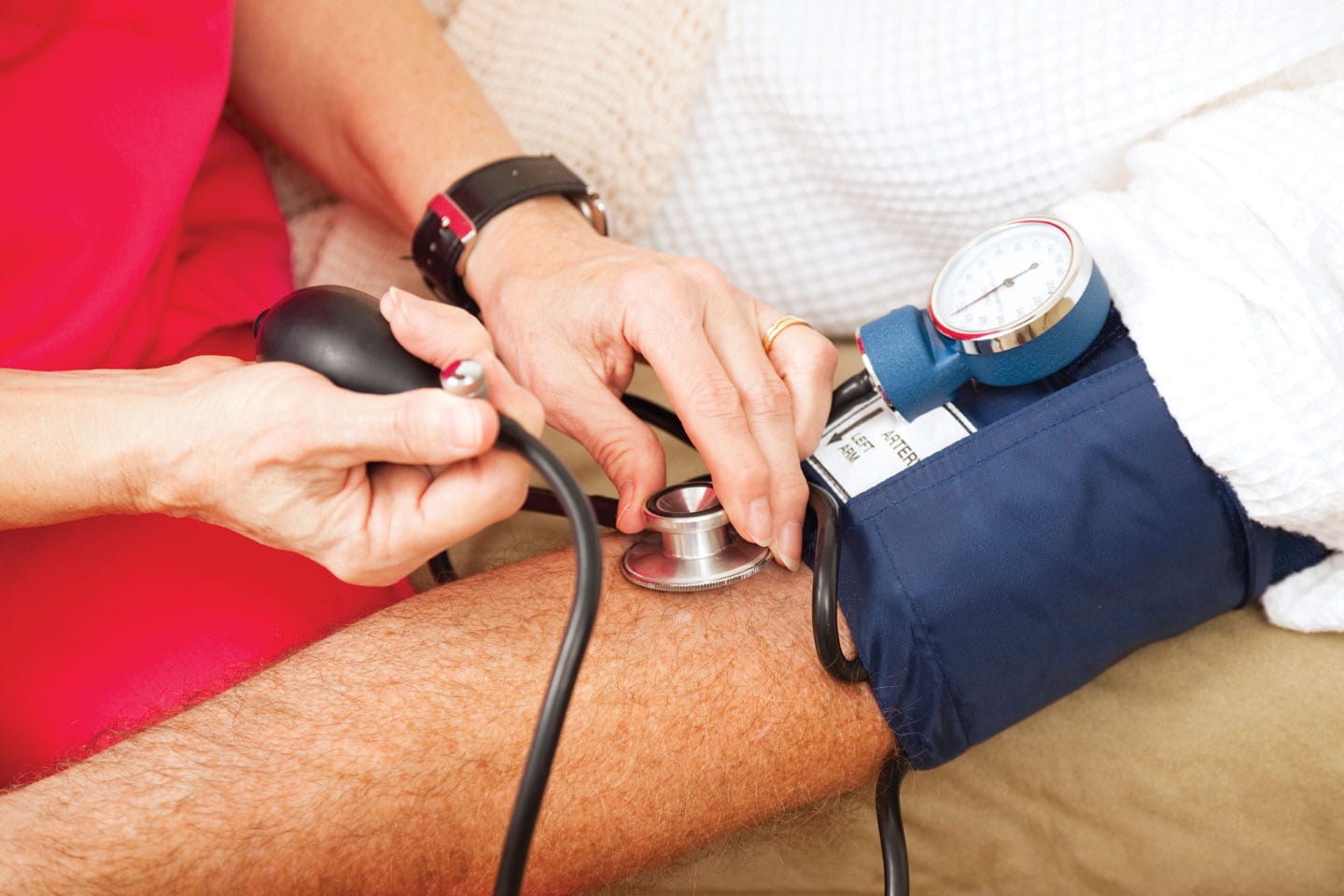In recent years, advertisements featuring testosterone enhancing drugs and supplements have become a staple of late night television, each promising an increase in sexual performance, muscle mass, and vitality. There is no doubt that testosterone is an important component of men’s overall health, but these ads may not tell the whole story.
Declining testosterone levels are a fact of life for men as they age. This age-related loss is perfectly normal, but some men experience a more dramatic drop in their testosterone levels, which can leave them feeling less manly, less energetic, and less confident. What exactly is this important hormone and what are its primary functions? What do men need to know about low testosterone levels as they age, and when should they seek treatment?
The Male Hormone
By Julianne Hale
What is Testosterone?
Testosterone is defined by Dictionary.com as “the sex hormone, secreted by the testes, that stimulates development of the male sex organs, secondary sexual traits and sperm.” This hormone is responsible for turning boys into men during puberty. It causes the voice to deepen, promotes the development of muscles, is responsible for the growth of pubic and facial hair, and is a key reason for the strong libidos characteristic of most men.
What are Normal Levels?
Determined by a simple blood test, normal levels of testosterone can range between 300 and 1,000 nanograms per deciliter. Levels that measure less than 300 nanograms per deciliter are considered low.
What Causes Low Testosterone?
According to Dr. Oliver Benton, a local urologist from Plaza Urology Group, a gradual decline in testosterone levels, or andropause is associated with aging. “Testosterone decreases around 10 percent each decade after thirty. It’s a natural thing,” he says.
Only a small percent of older men have levels that are considered abnormal. A severe decline in testosterone levels is usually the result of malfunctioning gonads (testes), or hypogonadism. Hypogonadism is most frequently caused by testicular disease or injury to the testicles or scrotum. A significant testosterone deficiency may also spring from a malfunctioning pituitary gland.
Obesity can also be a cause of low testosterone, as large amounts of fat cells enhance the conversion of testosterone to estrogen. Although men need estrogen, particularly to maintain healthy bone density, excessive conversion of testosterone to estrogen can lead to significant health problems. Maintaining a healthy weight and making positive lifestyle choices is the best way to maintain health and encourage normal testosterone levels.
Effects of Low Testosterone
The impact of low testosterone on the body can be devastating for men, with effects that include a loss of ability and appetite for sex, erectile dysfunction, decreased energy levels, depression, fatigue, sleep disturbances, inability to build muscle mass, decrease in bone density and increased risk for osteoporosis, diminishing ability to concentrate and irritability. Erectile dysfunction is the most common symptom and is typically what leads men to seek treatment for low testosterone. However, Dr. Benton says that although testosterone increases libido, it generally will not solve issues surrounding erectile dysfunction.
Treatments for Low Testosterone
Dr. Benton also says that because testosterone levels vary throughout the day, it’s best to get it checked in the morning. There are several kinds of treatment available for low testosterone levels. The oldest form of treatment is deep muscle injections. Given every one to three weeks, these shots give patients a boost of the hormone for a few days and then the levels drop off. It is the least expensive treatment available, but it can be painful and unpleasant for individuals with an aversion to needles.
Buccal tablets, another treatment option, provide 12 hours of slow-release testosterone into the blood stream. They are placed between the gums and the upper lip, much like chewing tobacco. The tablets are a good option for some men, but they can taste bitter and irritate the gums.
Gels are popular treatment options. Applied daily to the skin, gels allow the testosterone to be absorbed into the blood stream. They are easy to use and relatively convenient, but patients must avoid letting their partners or children come into contact with the gel. In addition, some skin irritations are associated with this type of treatment.
The latest treatment option for a testosterone deficiency is to implant pellets of testosterone in the subcutaneous tissue underneath the external layer of skin. If you choose pellets, a doctor will usually implant these under local anesthesia around two to three times per year. The pellets dissolve over months and deliver a more steady dose of the hormone.
Possible Side Effects of Treatment
Treatment of low testosterone levels can restore the levels of the hormone to normal and significantly improve the lives of men who suffer with this condition. There are, however, some negative side effects to take into account when considering these treatments. They include breast tenderness, acne, and accelerated age-related enlargement of the prostate (benign prostatic hyperplasia). In addition, long-term use may increase red blood cell count, causing blood to thicken and increasing the risk for clots.
Men with certain conditions should steer clear of testosterone treatments altogether. These include men with sleep apnea (as the treatments can worsen this condition), men with benign prostatic hyperplasia, men with severe congestive heart failure and men who have high red blood cell counts. In addition, men who are considering having children should steer clear of testosterone treatments because they can turn off the body’s own sperm production.
Testosterone and Good Health
Making healthy lifestyle choices and staying fit are critical components to maintaining normal testosterone levels. For men who seek treatment for testosterone levels that are lower than normal, getting and staying fit can make a significant impact on the effectiveness of a treatment plan.
Aging doesn’t mean becoming less manly. Lower levels of testosterone are a normal part of aging. Becoming familiar with lowering levels of testosterone and what it means for your body can help you make decisions with your doctor about treatments that may be best for you.
Julianne Hale and her family reside in Cleveland. She earned a Bachelor of Science degree from Illinois State University and then an MBA from the University of Phoenix. Julianne is a member of the Chattanooga Writers Guild, is married, and has three children.
See Related Articles









